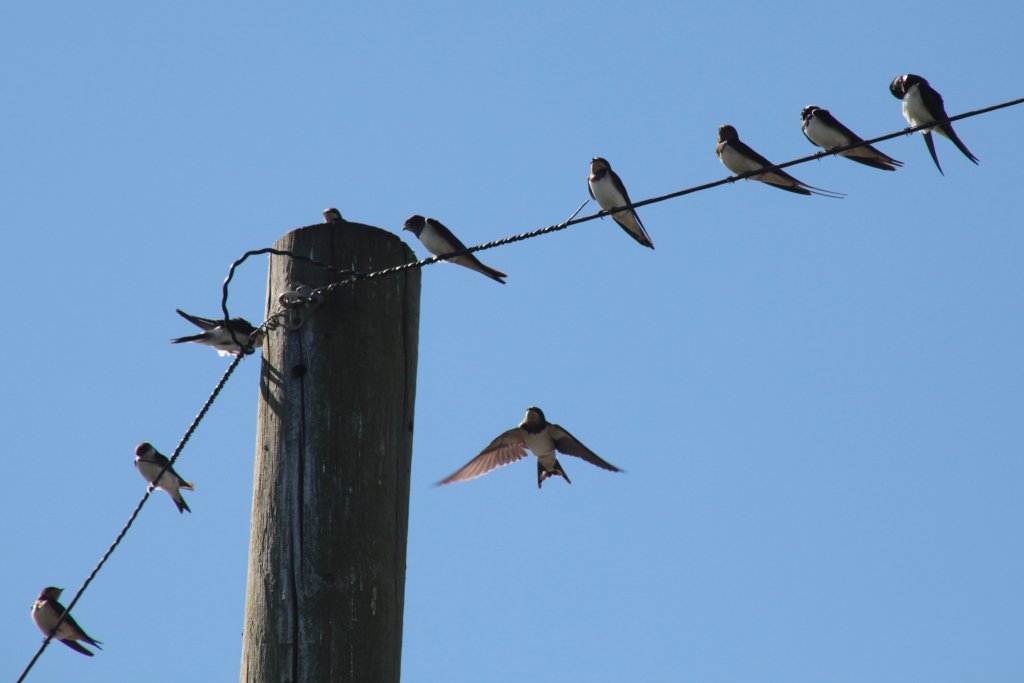September is a strong contender for my favourite month: generally decent weather, not too hot, often better than August; a sensible mix of daylight and night-time hours; fewer people about, now the kids are back at school; early hints of autumn to come. On the downside, though, winter is on its way, and favourite migrants are leaving us.

The swifts are long gone. The swallows will be following soon. Back to Africa, swapping the local cows for wildebeest. It always seems strange to me to realise swallows hang out with lions and baboons for half the year. So much more exotic than our foxes and rabbits. Not that there’s anything wrong with foxes and rabbits, you understand. I wonder if African flies taste different to our European ones. (To the swallows, I mean: I’m not particularly interested in finding out for myself.)
What I also tend to forget is that swallows begin their lives up here, in Europe not Africa. Here is where they nest and raise their young. Without wishing to sound parochial, it’s wrong to think of them as summer migrants: strictly speaking, they’re winter emigrants. Not that I begrudge Africa their loan.
Swallows’ annual disappearance each autumn used to perplex those who had time to wonder at such marvels. Gilbert White, an unabashed swallow fanboy, very much regretted their vanishing each autumn, being undecided whether they migrated abroad or remained nearby in some unknown hybernaculum. Reading White’s The Natural History of Selborne, however, I gained the distinct impression he would have much preferred it had his beloved hirundines remained local.
The way things are going, White might one day get his way. This spring, the British Trust for Ornithology reported that up to 10 swallows were observed to have overwintered in southern England, rather than making the dangerous and arduous two-way journey to Africa and back. Welcome though White might have found such news, it doesn’t bode well: the only reason these birds were able to survive over winter in the UK was that our winters are getting milder as a result of climate change.
Leave a Reply